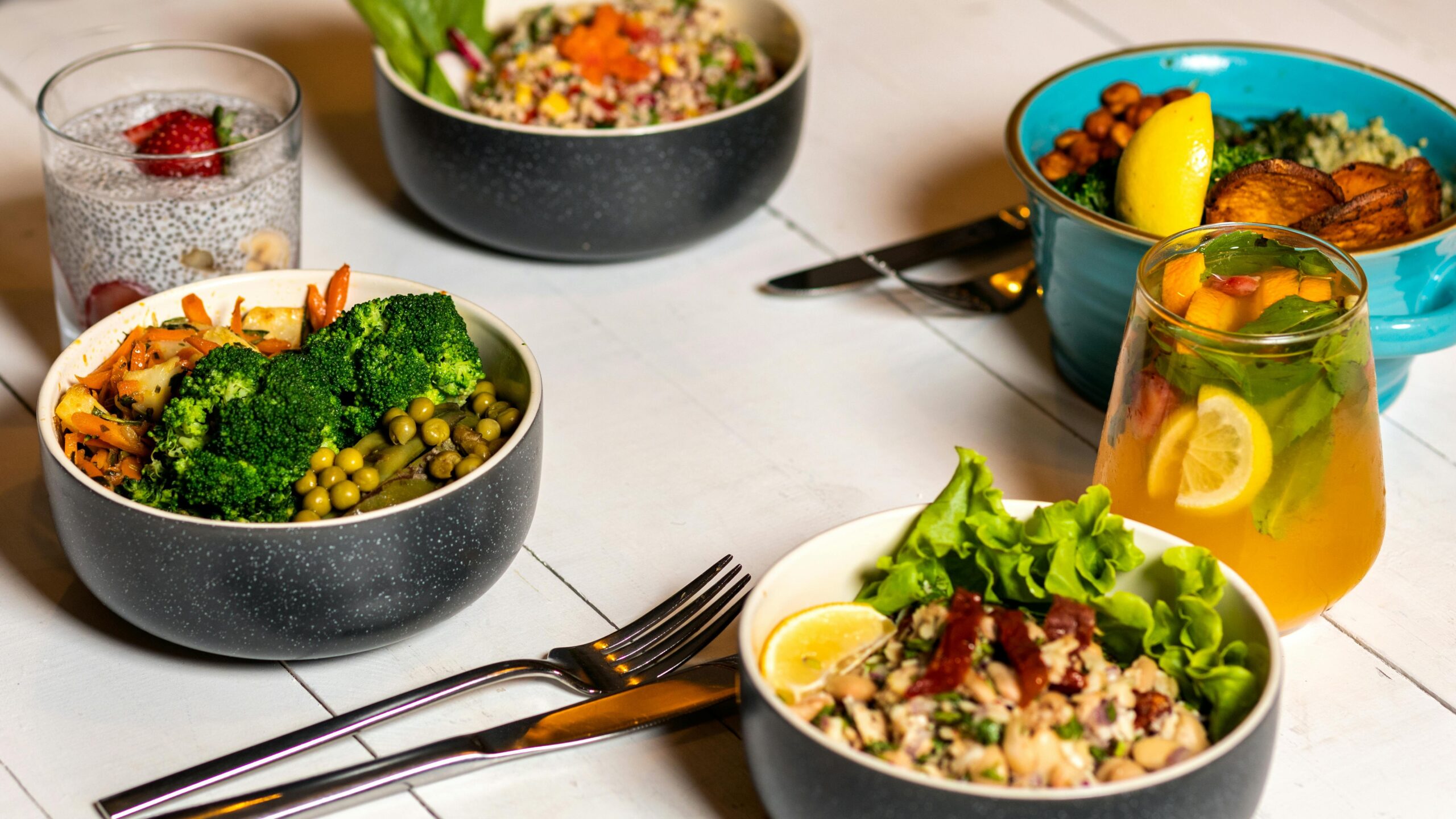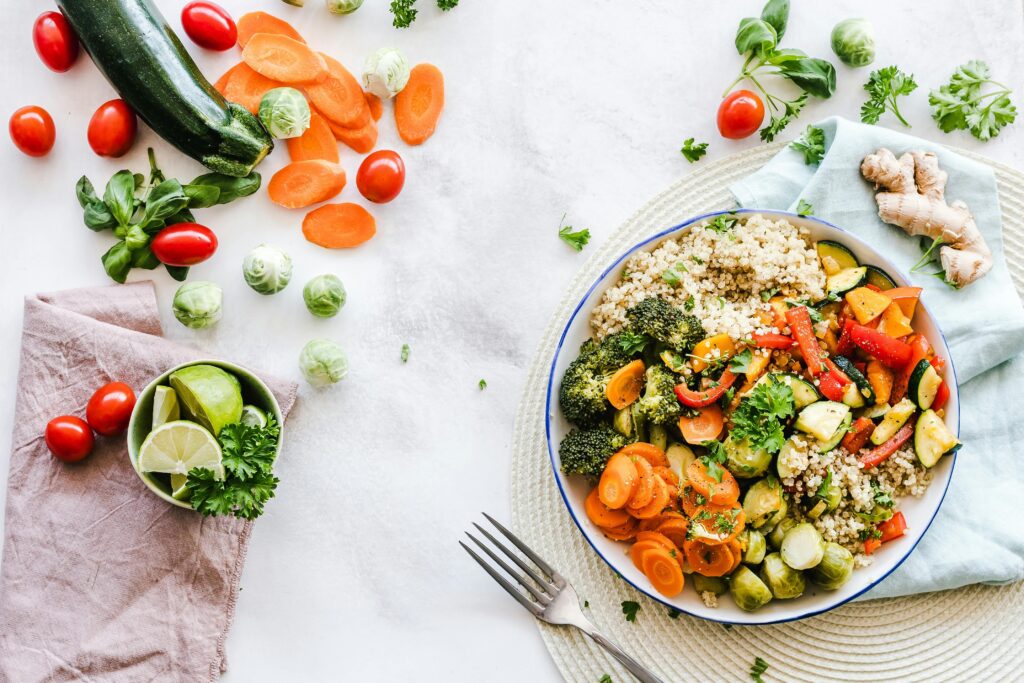Ever stared at your skin in the mirror after a week of indulging in junk food? Dullness, breakouts, and uneven texture screaming louder than your caffeine addiction on a Monday morning? Yeah, that’s your body waving a red flag for balanced nutrition. But here’s the twist—what if glowing skin starts not with an overpriced serum but with organic vegetables?
In this blog post, we’ll uncover how eating your greens (and yellows, reds, and purples) can boost skin clarity and vitality while diving into actionable tips, surprising facts, and even some brutal honesty about skincare myths. Ready? Let’s get radiant.
- Table of Contents
- Key Takeaways
- Why Your Skin Craves Organic Vegetables
- How to Incorporate Organic Veggies Into Your Diet
- Tips for Maximizing Their Benefits
- Real-Life Transformations Through Balanced Nutrition
- Frequently Asked Questions About Skincare and Organic Foods
Table of Contents
- Key Takeaways
- Why Your Skin Craves Organic Vegetables
- How to Incorporate Organic Veggies Into Your Diet
- Tips for Maximizing Their Benefits
- Real-Life Transformations Through Balanced Nutrition
- Frequently Asked Questions About Skincare and Organic Foods
Key Takeaways
- Organic vegetables are rich in antioxidants and vitamins essential for maintaining healthy, glowing skin.
- A diet centered around balanced nutrition helps reduce inflammation and combat premature aging.
- Incorporating these foods doesn’t have to be boring—you can blend them into smoothies, soups, or even desserts!
- Skin issues like acne, dryness, and dullness may improve significantly when powered by nutrient-dense ingredients.
Why Your Skin Craves Organic Vegetables

Let me paint you a picture. A few years ago, I went full-on junk-food warrior during finals week. Think frozen pizzas, sugary energy drinks, and chips until sunrise. My reward? Not just a passing grade—but angry pimples camping all over my face. It was chef’s kiss awful. That’s when I realized it wasn’t stress alone; it was neglecting *balanced nutrition*.
The good news? Science backs up why organic veggies are true superheroes. They come packed with nutrients such as vitamin C, beta-carotene, and zinc, which help repair cells, fight free radicals, and protect against environmental damage. Plus, organic varieties avoid harmful pesticides linked to hormone disruption—a major culprit behind pesky hormonal acne.
Now, before you roll your eyes thinking, “Here comes another kale pitch,” hear me out. These aren’t your grandma’s steamed peas. We’re talking flavorful combinations like roasted sweet potatoes drizzled with olive oil, creamy spinach-packed pesto pasta, or zucchini noodles tossed in avocado sauce. Yum, right?
How to Incorporate Organic Veggies Into Your Diet

Optimist You:* “Eating clean sounds simple!”
Grumpy You: “Ugh, fine—but only if coffee’s involved.”
Step 1: Choose Your Top Three Powerfoods
Start small. Pick three veggies known for their beauty benefits: carrots (vitamin A), kale (detoxifying chlorophyll), and bell peppers (anti-inflammatory). Focus on adding one serving per day first.
Step 2: Get Smart With Prepping Methods
Steaming preserves more nutrients than boiling. And no, throwing broccoli in a microwave isn’t sacrilege—it actually works just fine.
Step 3: Create a Weekly Menu
Plan meals ahead so you don’t fall back on processed snacks. Pinterest is gold here, trust me.
Tips for Maximizing Their Benefits

- Pair With Healthy Fats: Tomatoes + olive oil = lycopene absorption unlocked.
- Blend Instead of Juicing: Keep the fiber intact for better digestion.
- Variety > Quantity: Rotate different veggies each week to cover all bases.
Warning: Avoid raw spinach salads seven days a week—they contain oxalates, which can mess with mineral absorption. Balance is key. Always.
Real-Life Transformations Through Balanced Nutrition
Jessica, a wellness blogger from Vancouver, shared her journey from chronic acne to clear skin simply by switching to an organic plant-based diet. Her secret weapon? Sweet potatoes roasted with turmeric—an anti-inflammatory powerhouse combo. Check out her results here: [Link to external source].
Frequently Asked Questions About Skincare and Organic Foods
Q: Can I use organic vegetables topically too?
A: Yes! Mashed avocados make excellent DIY masks for hydration.
Q: Are frozen organic veggies less nutritious?
A: Nope! Studies show they retain most of their nutrients due to flash-freezing techniques.
Conclusion
Glowing skin starts on your plate—or your grocery cart filled with vibrant produce. By prioritizing organic vegetables and adopting balanced nutrition habits, you’ll feed both your body and complexion. And who knows? Maybe one day, you’ll wake up looking like you’ve slept eight hours AND had a professional facial.
P.S. Remember, Rome wasn’t built in a day. Start slow. Experiment. Have fun with it. Like a Tamagotchi, your skincare needs daily care—so nourish wisely!


